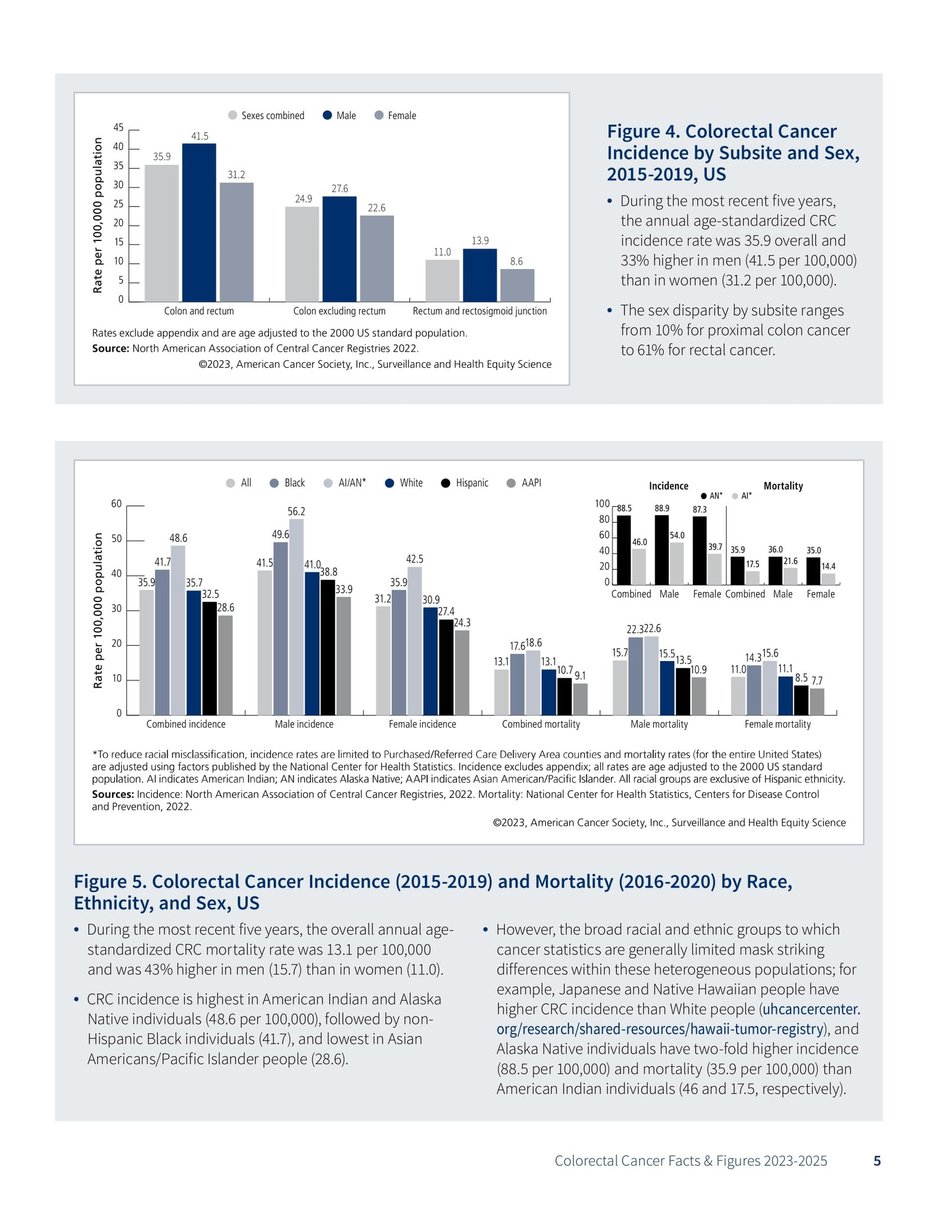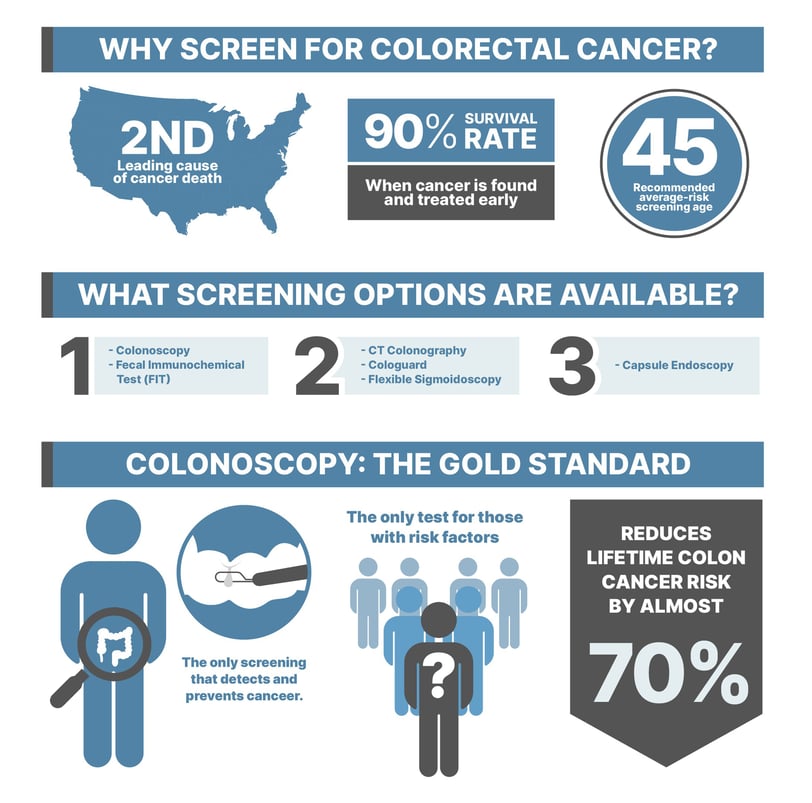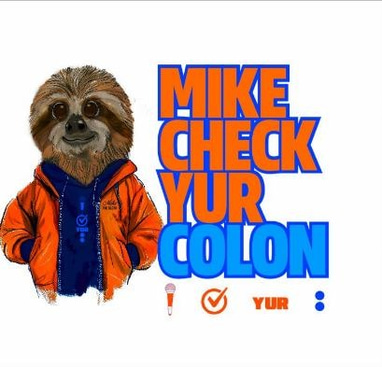Colorectal Cancer Awareness
Empowering young adults to prioritize colonoscopies for prevention and early detection of colorectal cancer.
Frequently asked questions
Who can get colon cancer?
Colon cancer can affect anyone, but certain factors such as age, family history, diet, and lifestyle can increase the risk.
What are your odds of survival if you are diagnosed with colon cancer?
Survival odds depend on the stage at diagnosis, but early detection significantly improves survival rates, with localized cases having a five-year survival rate of about 90%.
What can I do to prevent colon cancer?
Regular screenings, a healthy diet, regular exercise, avoiding smoking, and moderating alcohol consumption can help reduce your risk.
Where can I get treatment or detection services?
Treatment and detection services are available at hospitals, cancer centers, and clinics specializing in gastrointestinal health. Consult your healthcare provider for options in your area.
Can colon cancer be treated?
Yes, colon cancer can often be treated with surgery, chemotherapy, radiation therapy, or a combination of these, especially if detected early..
Where does the money go when we donate to your cause?
Donations go toward funding research, providing screenings, and supporting patients and families affected by colon cancer?


Statistics by Ethnicity
Why Get Screened?
Colon cancer typically affects older adults, though it can happen at any age. It usually begins as small clumps of cells called polyps that form inside the colon. Polyps generally aren't cancerous, but some can turn into colon cancers over time.
Polyps often don't cause symptoms. For this reason, doctors recommend regular screening tests to look for polyps in the colon. Finding and removing polyps helps prevent colon cancer.


